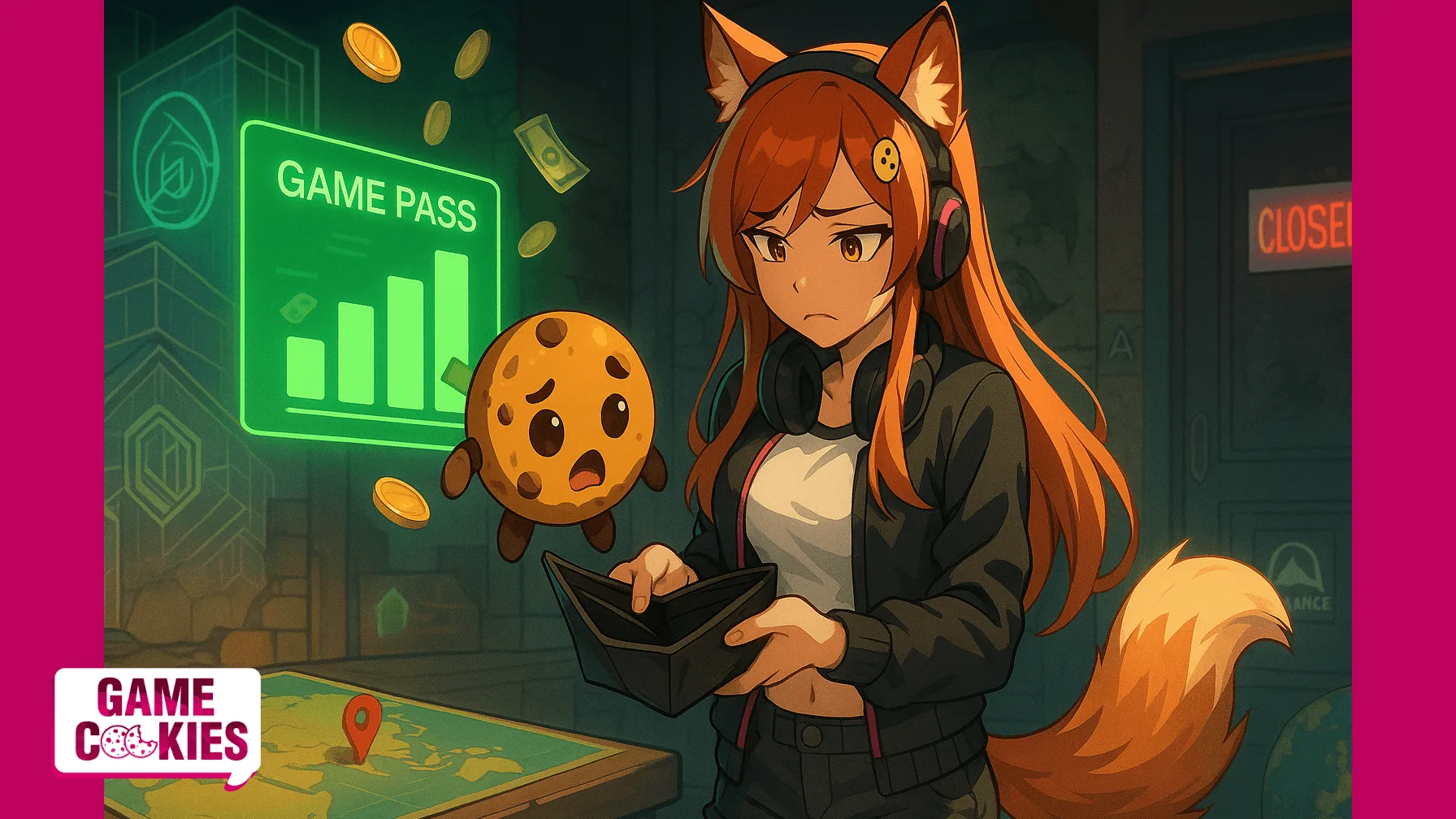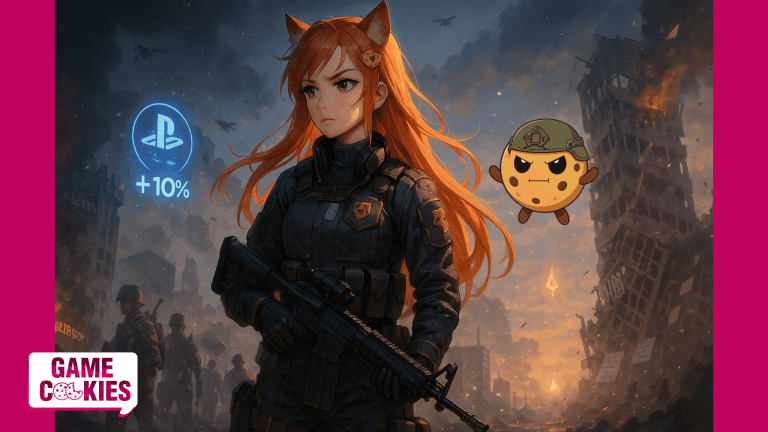
Hello there industry watchers, culture knights. Today’s game industry is in flux. Ubisoft is spinning up a new “creative house” backed by Tencent. Microsoft is reshaping Game Pass pricing. EA’s debt-driven AI gamble is spooking studios like BioWare. Avalanche is closing a site. Meanwhile, Nintendo is planting a flag in Southeast Asia. Let’s connect the dots.
🏛️ Ubisoft + Tencent Launch Vantage Studios — A Creative House to Watch
Ubisoft has officially launched Vantage Studios, with Tencent holding 25%. Leadership goes to Christophe Derennes (former Ubisoft NA head) and Charlie Guillemot (son of Yves Guillemot). Vantage will oversee three major franchises: Assassin’s Creed, Far Cry, and Rainbow Six.
The new studio pulls staff from Montréal, Sherbrooke, Saguenay, Barcelona, and Sofia. In total, it counts around 2,300 developers. It is also Ubisoft’s first “Creative House.” Each house manages specific franchises with more autonomy.
However, if other houses follow the Tencent model, Ubisoft could lose direct control over its IPs. The plan may bring efficiency. Yet it also risks shifting power away from Ubisoft’s center.
🦊 Kiki’s Opinion: Ubisoft isn’t just reorganizing — they’re hedging for long-term power shifts. Giving Tencent a stake in your “creative houses” is like planting seeds in your IP orchard and hoping you still control the harvest.
🍪 Chip observing a tall stack of “Creative House” blueprints, nervously adjusting his tiny cookie glasses.
💰 Microsoft Raises Xbox Game Pass Ultimate Price Amid Tier Reshuffle
Microsoft has increased Game Pass Ultimate to $29.99 / £22.99 per month. At the same time, it introduced three tiers: Essential, Premium, and Ultimate. Day-one releases are now locked to the top tier. Rewards also change. Points no longer redeem directly to subscriptions. Instead, they must go through gift cards.
On paper, this looks like more choice for players. In practice, it is a price hike that pushes value to the top tier. Microsoft made nearly $5B from Game Pass last year. Even so, the shake-up shows that growth alone is not enough. Profitability is now the main goal.
Therefore, Microsoft is signaling to the market that Game Pass must prove sustainable. This change could strengthen its margins, but it might also weaken trust among players.
🦊 Kiki’s Opinion: This price hike says what words won’t — “we’re chasing profitability, not goodwill.” When subscriptions become one of your biggest cost lines, the balance between scale and margin sits on a razor’s edge.
🍪 Chip clutching his tiny wallet, side-eyeing the new tier chart in quiet dread.
🏥 BioWare Developers Fear What’s Next, Given EA’s Debt Overhang
BioWare developers are anxious as Electronic Arts (EA) takes on $20B of acquisition debt. Some are already updating portfolios and exploring other jobs. Their last release, Dragon Age: The Veilguard, had a rough reception. As a result, confidence inside the studio is low.
The deal itself won’t close until Q1 FY 2027. Even so, debt pressure is shaping choices today. Developers fear that cost-cutting, AI mandates, and tighter oversight will soon follow.
In addition, morale is weakening because of uncertainty. Teams want to focus on making games, but survival concerns are creeping in.
🦊 Kiki’s Opinion: The fear in BioWare’s halls is real. When your parent is bleeding debt, choices get made for margins — not artistry. One underperforming game can become the excuse for “streamlining.”
🍪 Chip hovering beside a BioWare poster, a Plan B folder poking out from under his stubby arm.
🏚️ Avalanche Closes Liverpool Studio — Fallout & Signal
Avalanche Studios Group is shutting its Liverpool office and restructuring in Malmö and Stockholm. Liverpool had been tied to Contraband before that project was canceled.
This closure highlights a wider contraction. Even mid-tier studios with history and strong IP links are now vulnerable. Costs are rising, projects are slower, and pipelines are tighter.
As a result, mid-size companies face the same risks as smaller teams. Stability now depends less on creativity and more on surviving market math.
🦊 Kiki’s Opinion: Studio closures used to be “bad news for indies.” Now it’s creeping into established shops. If Avalanche can’t keep the pipeline and overhead balanced, what hope do smaller teams have under harsher market math?
🍪 Chip sitting in front of a Closed sign, a few crumbs at his feet.
🌏 Nintendo Plants Flag in Southeast Asia with Nintendo Singapore
While others tighten belts, Nintendo Singapore has opened with SGD 8M in capital and Takahiro Miura as MD. Nintendo is also considering an expansion into Thailand.
It is a quiet move, but a strategic one. Local presence means faster deals, better retail access, and deeper roots in key markets. Meanwhile, Nintendo is playing a different game. The company is betting on steady expansion rather than restructuring.
🦊 Kiki’s Opinion: While giants rearrange the furniture, Nintendo quietly builds more rooms. In a global pivot, local strength can matter more than headline scale.
🍪 Chip holding a Singapore map, cookie eyes bright with possibility.
🔗 Connecting the Threads: Strategies, Survival, and Control
Taken together, these stories sketch a clear picture. Ownership and leverage are steering creativity as much as design. Ubisoft’s Creative Houses may shift power while bringing in capital. Microsoft is reshaping subscriptions to get more revenue per user. EA’s debt casts a long shadow, pushing BioWare into survival mode. Avalanche’s closure highlights mid-tier contraction. Meanwhile, Nintendo is betting on regional growth instead of reorganization.
Therefore, the next few years will test every approach. Will Creative Houses protect quality? Can subscriptions balance content breadth with profitability? Will AI help pipelines without gutting teams? Or will smaller studios continue to disappear while giants consolidate?
🍪 Final Bite: Where We Go from Here
This is a pivot point. The industry is tilting toward control, debt, scale, and regional presence. Studios must adapt or consolidate. Otherwise, they risk being crushed by financial forces bigger than their games.
🦊 Kiki’s Final Word: We’ve entered the era where studios, not just games, are under the microscope. AI, debt, and ownership are the levers. Whoever masters that nexus wins the next decade.
🍪 Chip staring at a branching studio roadmap, trembling slightly at the path ahead.
✨ Stay, Keep, Remember
Stay sharp — ownership shifts matter as much as release dates.
Keep watching how subscriptions, AI, and regional bets change the board.
Remember that creative control can vanish faster than a canceled game.
✉️ Tips about Ubisoft, Microsoft, EA, Avalanche, or Nintendo? Email us here!







